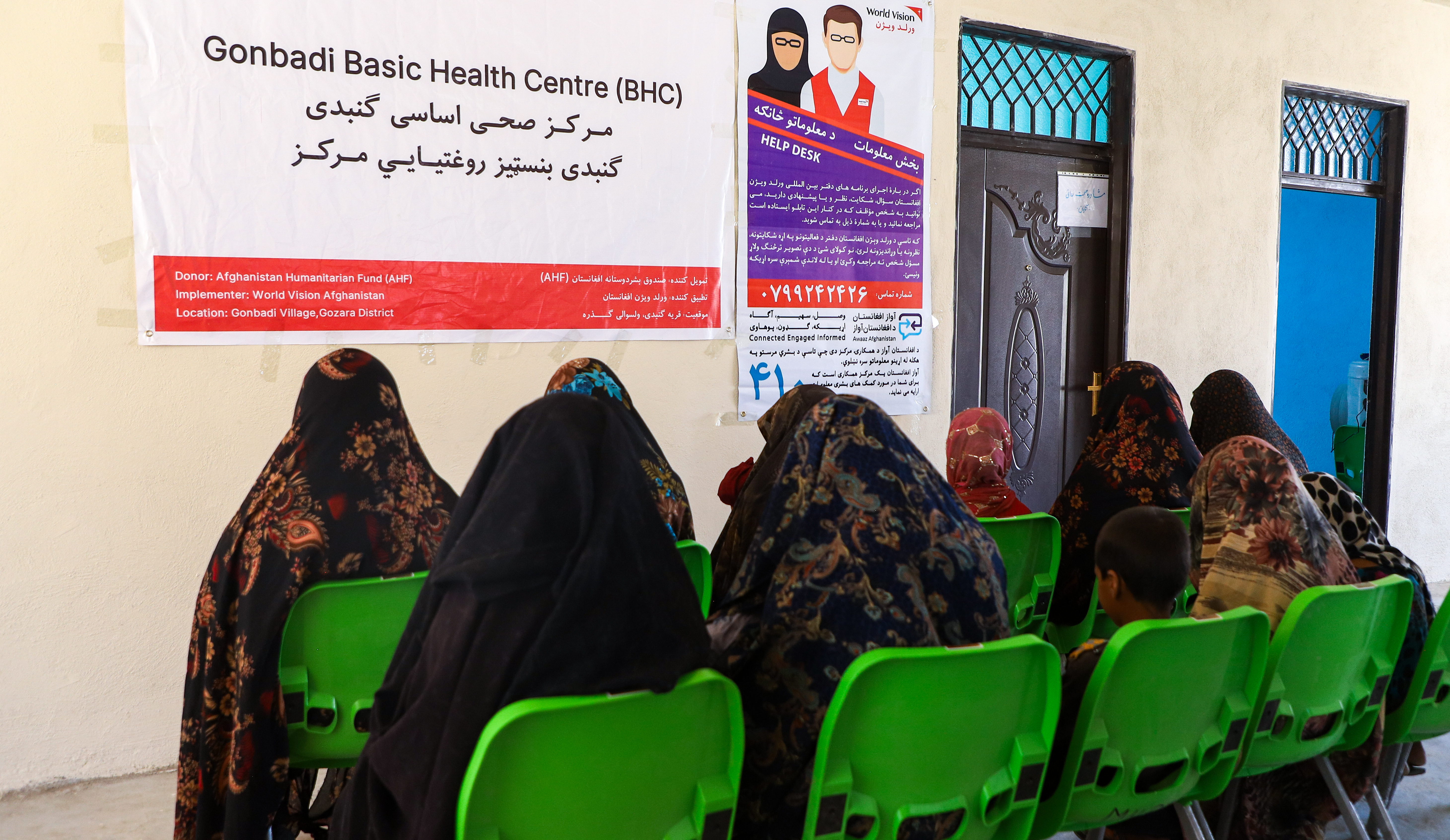Rural Herat Health Centre: 'Without It, We Would Still Be Losing Lives'
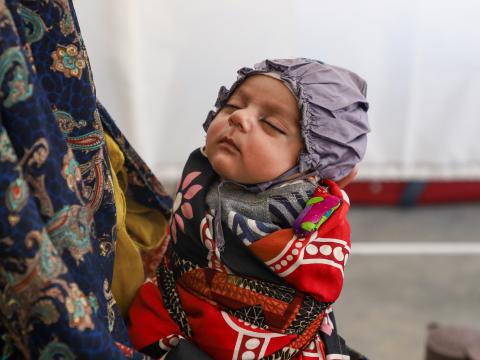
After driving for nearly two hours from Herat city—more than half the way on unpaved, uneven roads—we finally reached Gunbadi village in Guzara district. Along the road, dusty hills stretched endlessly, broken only by scattered mud houses and dry riverbeds.
Looking at the rough terrain, we thought of how impossible the journey would be in the rain or in winter snow. Our colleagues confirmed, “during bad weather, the entire village is cut off from the city.”
At the entrance of the newly established health centre, the head of the village, Khalil Ahmad, welcomed us warmly. Just beneath the stairs, a small space serves as a waiting area for men. A row of green plastic chairs was lined up, with men seated patiently.
Inside the main hall, similar green chairs were taken by women, some with infants in their arms, others with toddlers tugging at their scarves—all waiting quietly for their turn to receive care.
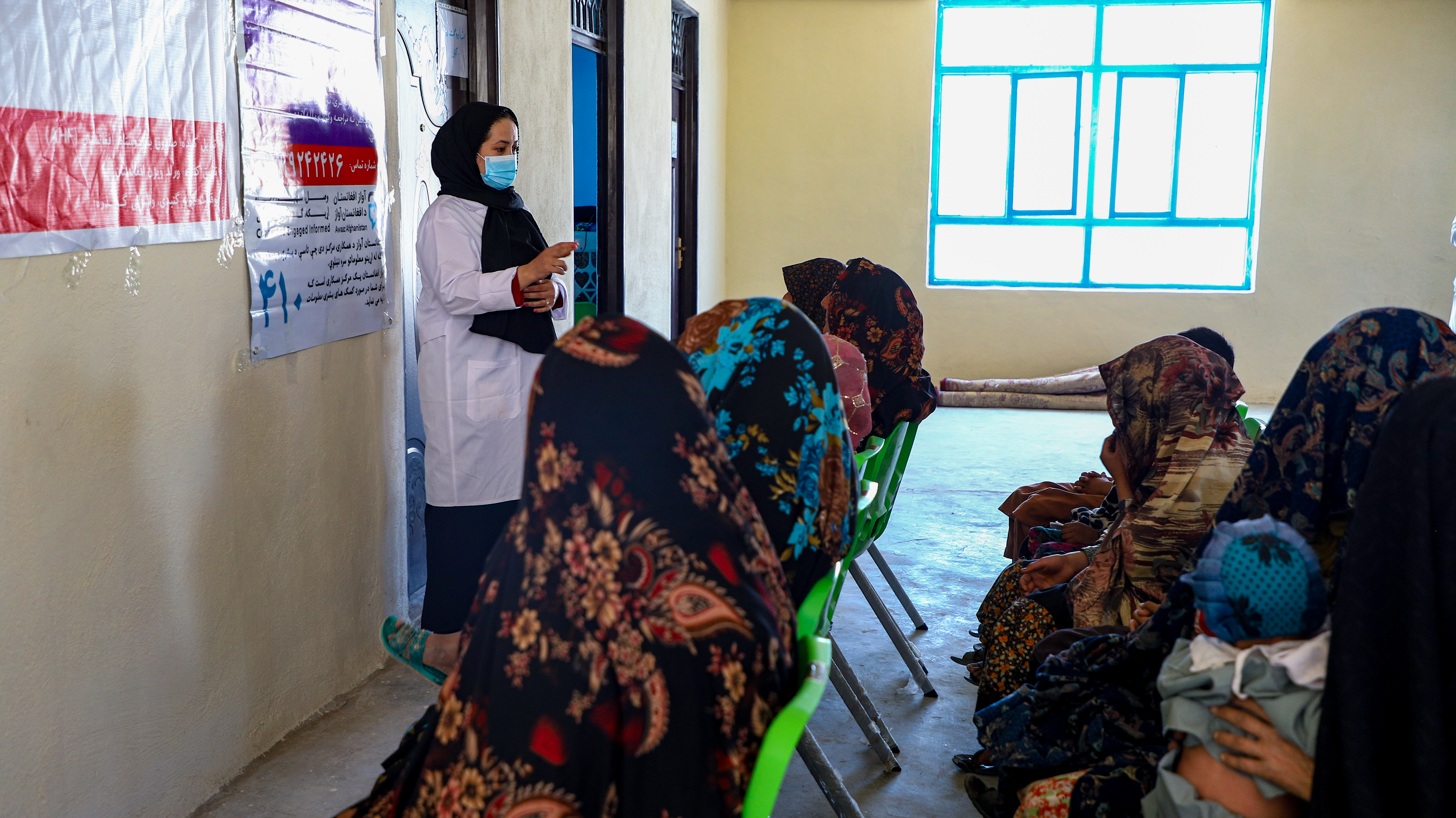
Among them was 21-year-old Fatima*, cradling her tiny son Osman, barely two months old. Wrapped in a handmade grey hat, he slept in her arms despite a raging fever.
Next to her sat Zahra, 45, who has battled constant fainting spells caused by low blood pressure. For years, Zahra had no choice but to travel to Sarjangal for treatment.
“We would ride motorcycles… and those who didn’t have one had to borrow,” she recalls. “It was exhausting and miserable, and sometimes, people didn’t make it in time.”
Hanifa, a grandmother seated nearby with her grandchildren, remembers the tragedies her community has endured.
“One pregnant woman in our area couldn’t survive because she didn’t get treatment on time,” she says quietly. “Another 20-year-old girl was injured by unexploded ordnance and died before she could reach a hospital.”
The challenges were never just about distance. Families here survive on small incomes, and many cannot even afford fuel for a motorcycle.
When someone falls sick, a breadwinner must often accompany them on the long trip—losing a full day of work in the process. Renting a vehicle from the city costs around 3,000 AFN, a debt that can take half a year to repay. For many, the choice was stark: borrow or risk the life of a loved one.
Like Hanifa and Zahra, hundreds of families across these villages lived in constant fear of what would happen if a child fell sick or a pregnant woman went into labour. With no car in the area, their only options were motorcycles, donkeys, or an expensive rented car.
In 2025, over 14 million people in Afghanistan need urgent health services, while 3.5 million children suffer from acute malnutrition. We saw the reality of these numbers in Gunbadi.
But thanks to a new health centre opening in Gunbadi, hope has returned to 15 surrounding villages, home to more than 5,000 people. The health centre was established as part of a project run by World Vision Afghanistan and funded by the Afghanistan Humanitarian Fund (AHF).
Dr. Walidad, the 29-year-old physician leading the clinic, explains: “We started just two months ago, but already we see more than 60 patients a day, mostly women and children. We provide outpatient care, maternal services including delivery, vaccinations, nutrition support, health education, and mental health services. Before this clinic, lack of access increased child and maternal mortality.”
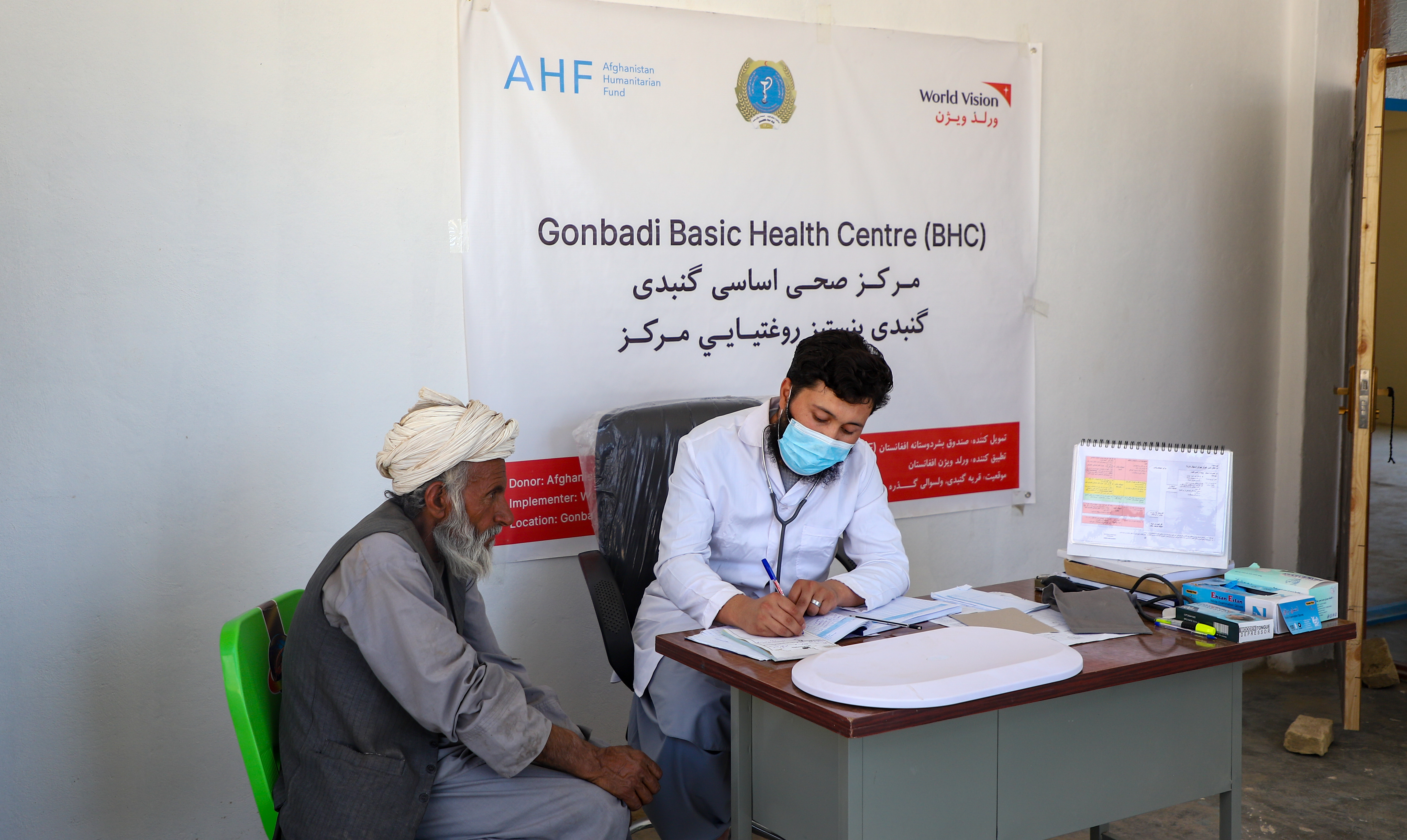
For Khalil Ahmad, the village head, the difference is profound. He recalls carrying a sick woman on a donkey for hours. She didn't survive the journey. “Now, I see children recovering from diarrhoea and malnutrition. One man who was brought here in a blanket walked out by himself after treatment, and later that same evening, I saw him in the mosque. We didn’t expect such support,” he says with a smile.
Zahra, who once had to ride a motorcycle for hours in search of care, now sits beside her children with a sense of relief. “We are very happy with this clinic and these doctors. We receive treatment, and my children are healthier now,” she says. “I used to suffer from low blood pressure, but after visiting this clinic twice, I’ve improved. Today, I came back for another check-up.”
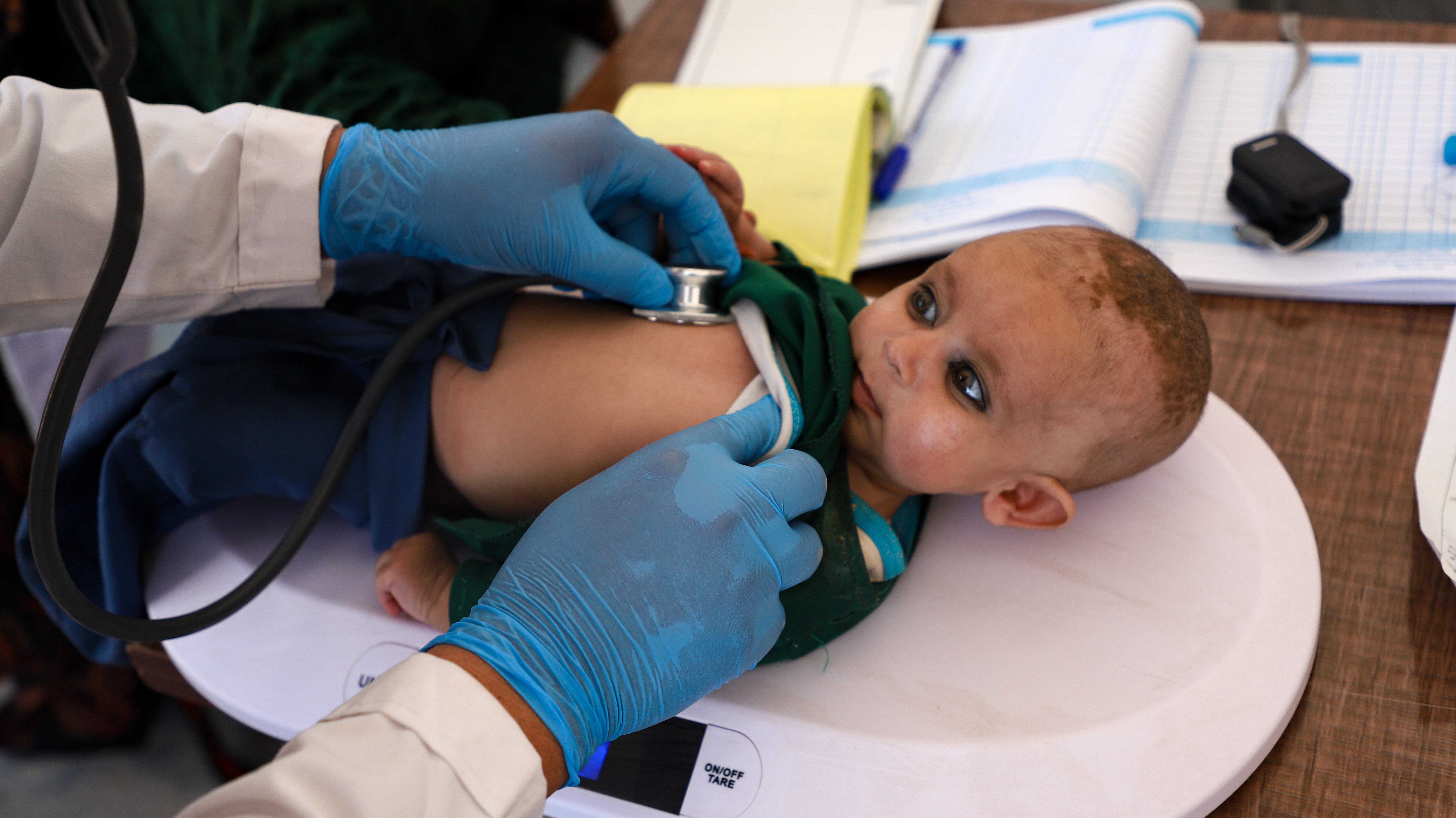
Challenges still remain. Families continue to rely on unsafe water sources, leaving them vulnerable to diarrhoea-related diseases and malnutrition. “What we need now is clean water,” says Khalil Ahmad. “If we could have a water network, it would complete the circle of health.”
For now, the community treasures the health centre as a lifeline. As Hanifa puts it while unwrapping her four-month-old grandchild for examination: “We are especially grateful for what this clinic means for pregnant women and children. Without it, we would still be losing lives.”
